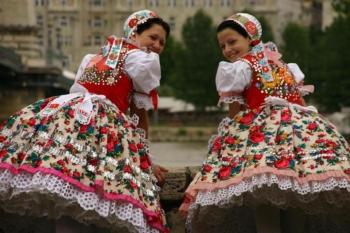Hungarian Nobel Prize winners
The Nobel Prize is considered the most prestigious scientific award. In his will, Alfred Nobel left his fortune to a foundation. Its interest would be distributed in five equal parts as prizes to those who had done the most for humanity in the previous years. The winners would be announced in the categories of physics, chemistry, physiology and medicine, literature and efforts for peace. Since 1969, the Nobel Prize in Economics has joined the former.
Hungary boasts many Nobel Prize winners. Most sites and sources list 16 Hungarian Nobel laureates. However, they can be divided into 3 groups:
- Hungarian Nobel laureates who lived in Hungary, as Hungarian citizens, and received the prize on the basis of Hungarian activities — 2 persons
- Not born in Hungary, but at least one of the parents is of Hungarian origin — 6 persons
- Born in Hungary, but emigrated and received the Nobel Prize on the basis of their work abroad — 8 persons
Albert Szent-Györgyi
He won the Nobel Prize in Physiology and Medicine in 1937. He got the prize for his discoveries in connection with the biological combustion processes, with special reference to vitamin C and the catalysis of fumaric acid. Szent-Györgyi left Hungary at the end of 1947. He died in 1986 in the USA.
Imre Kertész
Imre Kertész was the winner of the 2002 Nobel Prize for Literature. He won for writing that upholds the fragile experience of the individual against the barbaric arbitrariness of history. His book Sorstalanság (Fateless), about the Holocaust and tyranny, was 13 years in the making. He is the only Hungarian Nobel laureate who has died in Hungary.

Read alsoThe colourful world of Hungarian folk music! – VIDEO
Richard Adolf Zsigmondy
His parents were Hungarian, but Zsigmondy was an Austrian citizen. In 1925, he was awarded the Nobel Prize in Chemistry for his demonstration of the heterogeneous nature of colloid solutions and for the methods he used, which have since become fundamental in modern colloid chemistry.
Róbert Bárány
Róbert Bárány was also the son of Hungarian parents and an Austrian citizen. In 1915, he was awarded the Nobel Prize in Physiology and Medicine for his work on the physiology and pathology of the vestibular apparatus.
Milton Friedman
Milton Friedman was an American citizen. His Hungarian parents immigrated to New York before he was born. In 1976, he was awarded the Nobel Prize in Economics for his achievements in the fields of consumption analysis, monetary history and theory and for his demonstration of the complexity of stabilization policy.
Daniel Carleton Gajdusek
Like Friedman, Daniel Gajdekus was a US citizen born in New York. Born to a Hungarian mother, Gajdusek was awarded the Nobel Prize in Physiology and Medicine in 1976. He was awarded the prize for his discoveries concerning new mechanisms for the origin and dissemination of infectious diseases.
Elie Wiesel
He was born in Hungary to Hungarian parents. After World War II, he emigrated to France and then to the United States. In 1986, he was awarded the Nobel Peace Prize for his struggle to come to terms with the utter humiliation and contempt for humanity in Hitler’s death camps and for his practical work for peace.
János Polányi (John Charles Polányi)
Polányi was born in Berlin to Hungarian parents. In 1986, he was awarded the Nobel Prize in Chemistry for his contributions to the dynamics of chemical elementary processes. He is one of the few Hungarian Nobel laureates who are still alive.

Read also5 sentences to learn before coming to Hungary! – Part II.
György Békésy (George von Békésy)
Békésy is a Hungarian-American biophysicist. In 1961 he was awarded the Nobel Prize in Physiology and Medicine for his discoveries of the physical mechanism of stimulation within the cochlea. He spoke Hungarian with his father and German with his mother. In 1944, a bombing raid destroyed Békésy’s laboratory and instruments. He then travelled abroad, to Sweden and then to America.
János Harsányi (John Harsanyi)
John Charles Harsányi, Hungarian-born Nobel Prize-winning American economist. His main research interests are game theory, including cooperative information games. In 1994 he won the Nobel Prize in Economics for his pioneering analysis of equilibria in the theory of non-cooperative games.

Read alsoTOP5+1 surprising facts about the Hungarian Forint
Ferenc Hersko (Avram Hersko)
Avram Hershko is an Israeli biochemist of Hungarian origin. Hersko was born in Karcag, and during World War II the Germans took him to the Vienna area. After the war, he emigrated to Israel in 1950. He wrote the history of the Jewish community in Karcag in both Hungarian and Hebrew.
György Hevesy (György Bischitz)
Hevesy developed a radioactive tracer to study biochemical processes, such as animal metabolism. In 1943 he was awarded the Nobel Prize in Chemistry.
Gábor Dénes (Dennis Gabor)
Dénes Gábor is a Hungarian physicist, mechanical engineer and electrical engineer. He invented holography. He was born in Budapest to a Jewish family. He left Hungary in 1934 and became a British citizen. He was awarded the Nobel Prize in Physics in 1971 for his discoveries of the physical mechanism of stimulation within the cochlea.
Philip Lénard (Phillipp Eduard Anton von Lenard)
Philip Lénárd was the winner of the 1905 Nobel Prize in Physics. He was a member of the Hungarian Academy of Sciences, a university professor, and one of the most outstanding experimental physicists of his time. He attended Hungarian schools and received a Hungarian education, but later insisted on his German nationality. He was awarded the prize for his work on cathode rays.
György Oláh (George Andrew Olah)
The Hungarian-born American chemistry professor was awarded the Nobel Prize in Chemistry in 1994 for his contribution to carbocation chemistry. His memory will be preserved not only in the books of great Hungarian scientists but also in the books of great Hungarian patriots, said Hungarian Prime Minister Viktor Orbán.
Jenő Wigner (Eugene Paul “E.P.” Wigner)
Jenő Wigner was one of the physicists who reinvented the science of physics. He was born in the Terézváros district of Budapest into a Jewish family. In high school, he was one grade above János Neumann. In 1963 he was awarded the Nobel Prize in Physics for his contributions to the theory of the atomic nucleus and the elementary particles, particularly through the discovery and application of fundamental symmetry principles.

Read alsoHungarian minister outraged: he had to wait 20 minutes for a Fox News interview
please make a donation here
Hot news
What happened today in Hungary – 26 July, 2024
Drama: number of births in a 20-year low in Hungary
Yay or nay? – 6 odd Hungarian delicacies that make our skin crawl
Budapest tourism “exploded” this past weekend
Container transport in Budapest may stop: How will this affect Hungarian economy?
Minister: Hungary will protect its territory by every means possible



